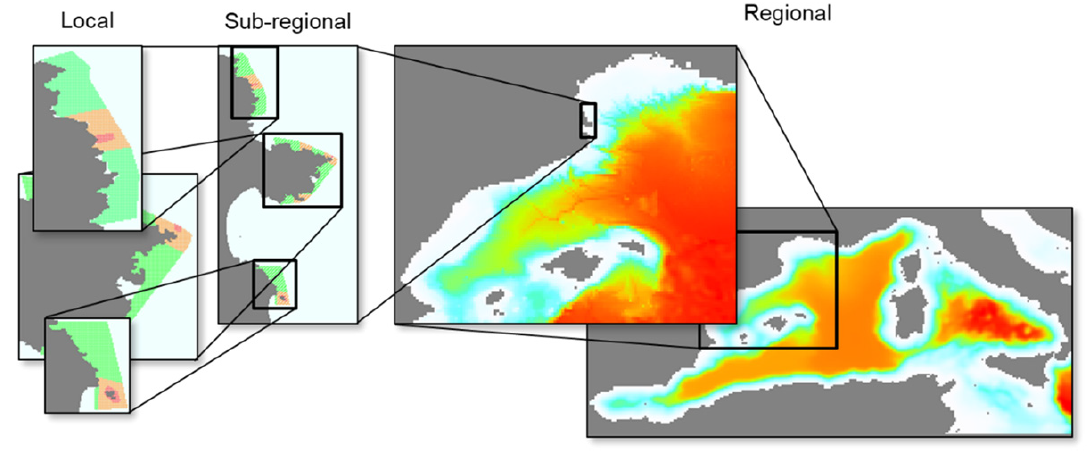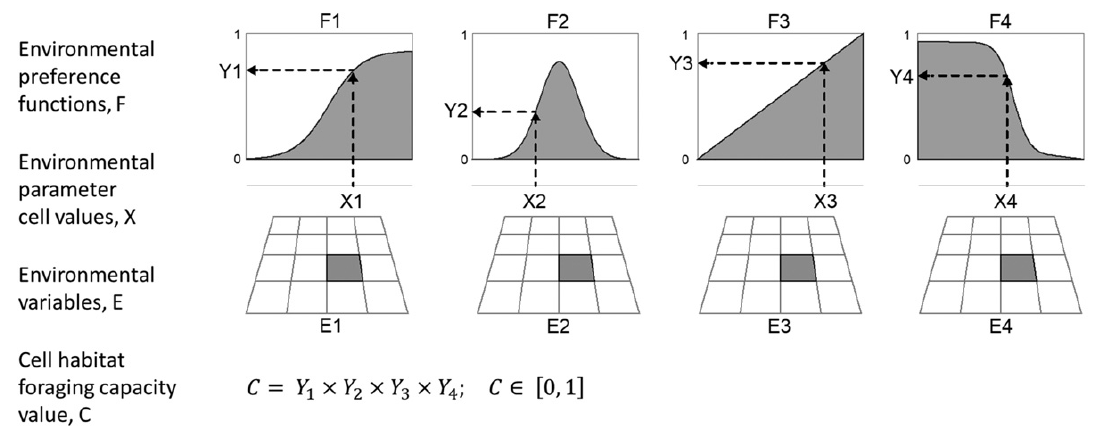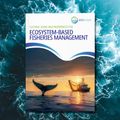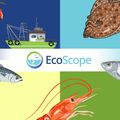EcoScope researchers write chapter on advances in coastal and marine modeling using Ecospace
Scientists from the EU-funded EcoScope project co-wrote a chapter titled “Advances in spatial-temporal coastal and marine modeling using Ecospace”, for the Elsevier Reference Collection in Earth Systems and Environmental Sciences, which will be published as a physical volume in January 2024. The chapter is already available for perusal and direct purchase online.
The piece was written by a group of researchers, including EcoScope partners Jeroen Steenbeek of Ecopath International Initiative, Villy Christensen of the UBC Institute for the Oceans and Fisheries, and Sheila JJ Heymans of the European Marine Board. EcoScope coordinator Athanassios Tsikliras of the Aristotle University of Thessaloniki noted the importance of the piece in advancing EcoScope’s spatial models.
In the chapter, the researchers provide a more complete description of the Ecospace spatial-temporal ecosystem model and its various applications, including recently developed features that have not been described before.
“The advancement of ecosystem-based management of aquatic ecosystems should no longer be limited by a lack of tools. However, a lack of comprehensive understanding of the capabilities of existing tools can form a barrier for uptake,” they noted.
The applications highlighted in the chapter showcase the plethora of spatial uses of Ecopath with Ecosim (EwE) ecosystem modeling approach and software, of which Ecospace is a part. Expansion of capabilities to incorporate the effects of environmental change has facilitated the use of Ecospace beyond fishery management, to further biodiversity protection, ecosystem restoration and environmental impact assessment, as well.
“New applications of Ecospace can truly contribute to advance modeling of cumulative impacts and management alternatives in marine ecosystems, and can be of interest to inform sectoral and intersectoral policy,” the team commented.
Applications of spatial models in coastal and marine systems covered in the chapter include modeling of food web effects of man-made structures, marine renewable energy devices and aquafarming, marine protected areas, hypoxia and nutrient loading, coastal restoration, episodic mortality events, pollution tracing, noise impacts, invasive species impacts, invasive species in data-poor systems, migratory spawning in littoral vegetation under changing lake levels, environmental impact assessments, climate change and future global ocean impacts, and maritime spatial planning.
“Evaluating effects of management alternatives on food webs and fisheries in Ecospace can provide useful information to policymakers,” the researchers noted, particularly due to Ecospace’s ability to take cumulative impacts into account.
“Ecospace allows the user to consider the impact of species interactions in ecosystem change, in addition to changes in environmental conditions and human activities. Results show how species interactions can buffer or enhance the effects of cumulative impacts, thus an ecological perspective is advisable since the outcomes can be counterintuitive,” the team explained. “Ecospace can also be used to make a substantial contribution to the identification of trade-offs in past, present and future ecosystem states, which are essential to proactively manage activities that impact natural resources.” Ecospace is therefore an effective available tool for advancing ecosystem-based management, the team noted.
The chapter was produced following the EuroMarine workshop on Modelling for policy advice in a context of global change, held in Barcelona in 2019. The researchers acknowledged EU funding through EcoScope and related initiatives.







